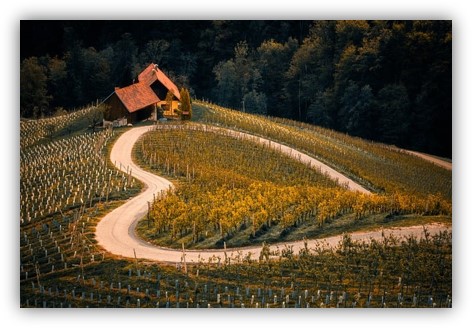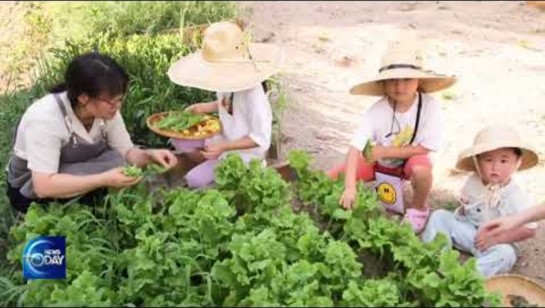|
What to know before starting?
What to know before starting? 
What will you learn?
 Define the meaning of social entrepreneurship in the countryside. Define the meaning of social entrepreneurship in the countryside.
 Provide examples of social and economic benefits of rural activities. Provide examples of social and economic benefits of rural activities.
 Recognise diverse forms of social entrepreneurship in rural areas. Recognise diverse forms of social entrepreneurship in rural areas.
How much time will it take?
 10 minutes 10 minutes
EQF level
Level 3
Who created the content and will recognise your learning?
This material was created by the partners of the Erasmus+ project “Upskilling Rural”.
Let’s start... but first think… 
Let’s start... but first think…
 |
Social entrepreneurship
Social entrepreneurship is the practice of starting and running a business with the primary goal of solving social, cultural, or environmental issues. Unlike traditional entrepreneurs who focus mainly on profit, social entrepreneurs aim to create positive change and improve society while still operating a sustainable and financially viable enterprise.
|
  
Social entrepreneurship in rural areas
Social entrepreneurship in rural areas 
What the social and economic benefits of the activity can be? 
Benefits:
- Social: counteracting unfavourable socio-economic processes such as: unemployment, social exclusion, marginalisation; professional activation of people excluded from the labour market (the disabled, addicts, long-term unemployed, homeless); integration of the local community related activities;
- Economic: additional revenue, commercial and production activities (sale of manufactured goods and services on a continuous basis), independence and sovereignty of activities; services of a mutual nature.
Forms of social enterprise in rural areas 
Among the forms of social enterprise in rural areas we can mention:
- A social cooperative is a social enterprise combining the characteristics of an enterprise and a non-governmental organisation. A social cooperative is a chance for a better life for many people from disadvantaged groups. The members of such a cooperative create jobs for themselves, providing an income for themselves and their families, and through joint action they change themselves and the environment in which they live.
- A foundation is an institution whose founder has set aside specific resources to achieve a stated purpose. Its characteristic feature is the non-profit nature of the purpose for which it was established.
- An association is made up of at least seven voluntarily associated persons with common goals or interests. A characteristic feature is democratic management, which has the effect of making it more difficult to manage and run such an organisation.
Directions for the development of social entrepreneurship in rural areas 
What non-agricultural activities directly related to agriculture can be developed in rural areas? 
Suggestions for the development of social entrepreneurship in rural areas can include:
- Agritourism,
- Rural tourism (organising holidays, recreation, catering, hospitality),
- Crafts and handicrafts,
- Painting, carving and cutting,
- Equestrianism and hippotherapy,
- Distribution of agricultural products,
- Processing of agricultural products,
- Production and all other activities (services, production, trade).
Sources
Sources 
|







 Play Audio
Play Audio 



 Define the meaning of social entrepreneurship in the countryside.
Define the meaning of social entrepreneurship in the countryside. 10 minutes
10 minutes














